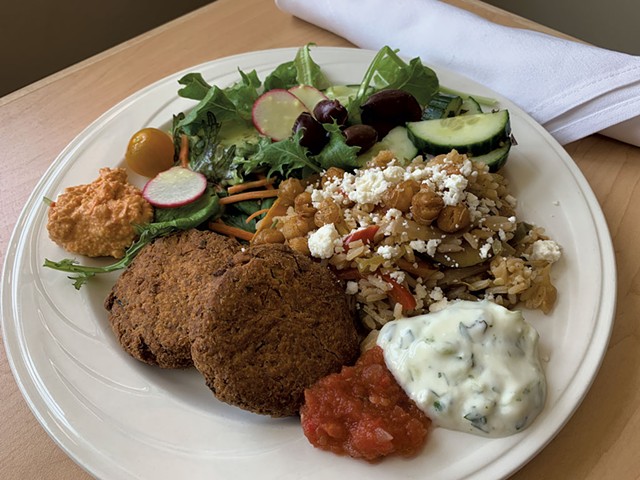
- Melissa Pasanen ©️ Seven Days
- Lunch made with some ingredients repurposed from the prior day's menu
On the second morning of the inaugural RISE Summit held last week at the University of Vermont, a pair of speakers signaled that it was time for a snack break.
In the fourth-floor atrium of the Davis Center, trays of oatmeal energy bites awaited about 200 conference attendees who had come to hear talks about the intersections of research, innovation, sustainability and entrepreneurship.
The crunchy, chocolaty balls were a tangible and tasty example of innovation and sustainability — and the result of a collaboration between the pre-break speakers: Sarra Talib, a PhD candidate in the university's food systems program, and Nicole Reilly, sustainability and campus partnership manager for Sodexo, the international company that runs UVM's campus dining.
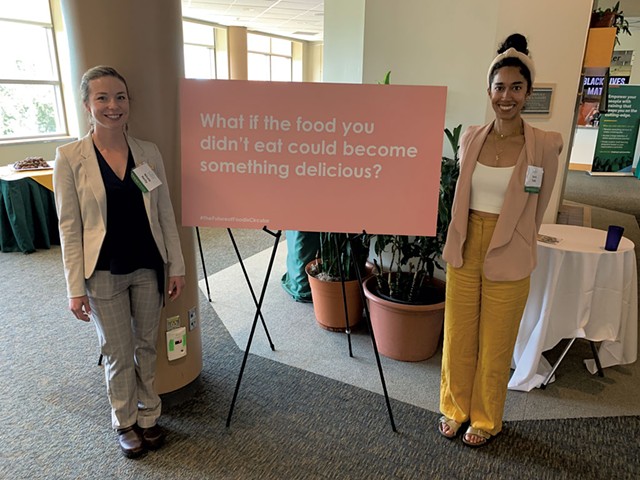
- Melissa Pasanen ©️ Seven Days
- Nicole Reilly (left) and Sarra Talib
The two had worked together to minimize food waste at the event and demonstrate what they call a "circular" approach to menu planning and execution, in which as little food as possible is wasted at every step, from growing to sourcing, cooking to eating.
Thursday's oatmeal energy bite, for example, utilized excess granola that had been made but not needed for Wednesday's morning snack of granola, yogurt and strawberries.
"We are designing waste out of the food system," Talib said.
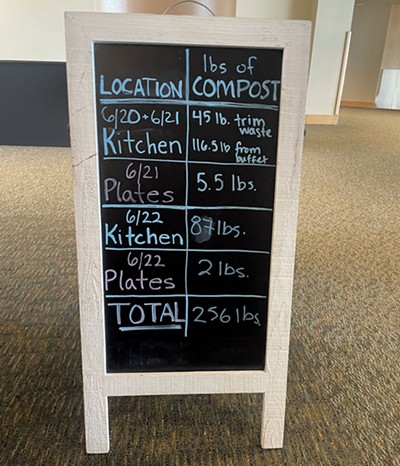
- Courtesy Of Nicole Reilly
- A tally of food waste from the RISE Summit
At least one-third of food produced for human consumption around the world is never eaten, Talib detailed. A huge amount of food is going to waste as billions of people go hungry and the resources used to produce, harvest, transport and process that food are squandered.
Everyone can help, Talib encouraged: "Small wins do matter."
Reilly congratulated attendees on the fact that they had generated only 5.5 pounds of plate waste on Wednesday, meaning that most had consumed everything they had served themselves from the morning snack and Tex-Mex buffet lunch.
The kitchen team had done its part, too, Reilly continued.
The oatmeal energy bite was an example of what Talib and Reilly described as "cascading" ingredients across a menu. That involves using the same ingredients in multiple dishes during one meal, or in sequential meals.
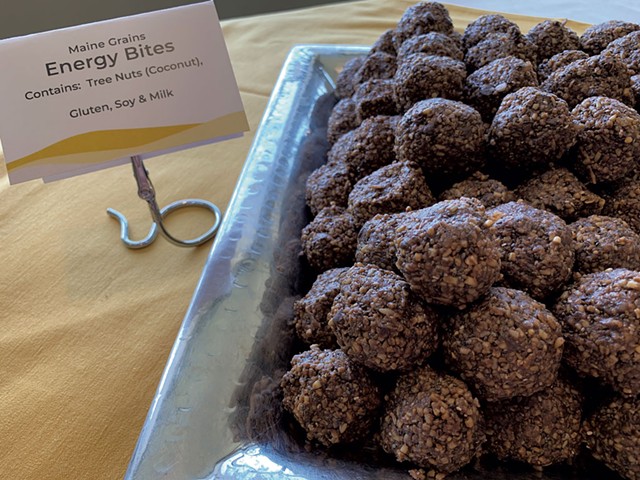
- Melissa Pasanen ©️ Seven Days
- Energy bites made with extra granola from the previous day
Over-purchasing and prepping to meet unpredictable demand is inherent in professional kitchens, Reilly explained later, standing by the Thursday lunch buffet. "You never want to be the chef that runs out of food."
Even though food waste can be composted, Reilly noted that, with forethought and planning, "there are more productive things to do with the food."
"Chefs want to feed people, not the compost," Talib said.
Several items on the Mediterranean lunch buffet deliciously proved that point. Extra local organic yogurt from the previous day's snack had been deployed in a tzatziki cucumber herb sauce for falafel. Rice and vegetables prepped but not needed for Wednesday's lunch were cooked in a stir-fry.
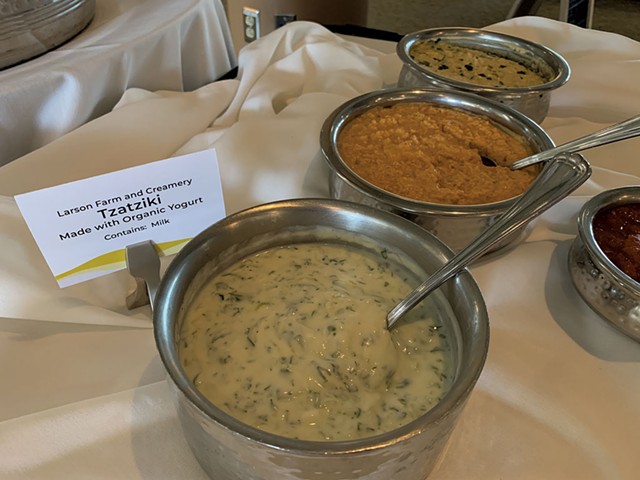
- Melissa Pasanen ©️ Seven Days
- Tzatziki made with excess yogurt
The circular approach starts even before the kitchen staff gets involved, Reilly explained. It includes regional ingredient sourcing, such as using ground beef from a program that buys healthy cows that are no longer productive milkers from local dairies. UVM's team also plans ahead to donate excess cooked food that cannot be repurposed to the campus food shelf, Rally Cat's Cupboard, and to Feeding Chittenden in Burlington.
Venture capitalist and author Dominic Endicott of Northstar Ventures had traveled from Beverly, Mass., to speak at the RISE Summit. Over lunch, Endicott said he appreciated learning about efforts to cut waste through circular approaches to food. "They're not easy," he allowed. "You've got to think through every step."
Endicott grew up as a member of "the clean plate club," he said. "Back when we had less abundance, we would reuse and recycle. A lot of times, you get lazy." It never hurts to be reminded, he said, that "relatively small changes can accumulate and have an impact."
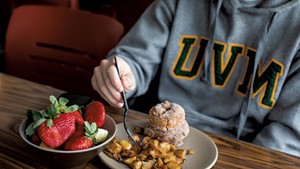
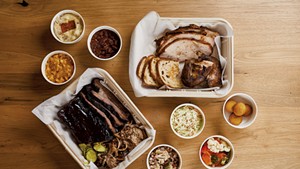
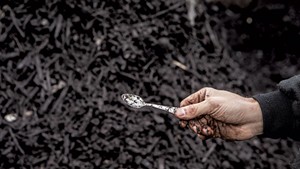
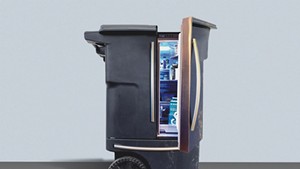




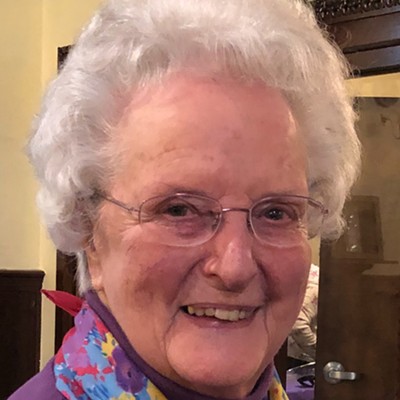
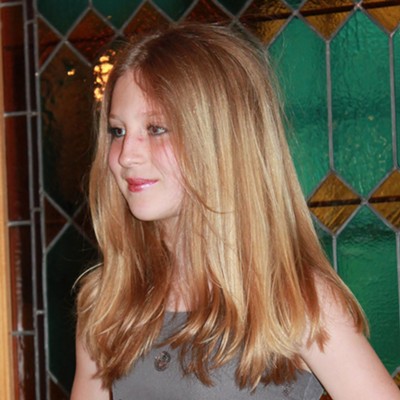
Comments
Comments are closed.
From 2014-2020, Seven Days allowed readers to comment on all stories posted on our website. While we've appreciated the suggestions and insights, right now Seven Days is prioritizing our core mission — producing high-quality, responsible local journalism — over moderating online debates between readers.
To criticize, correct or praise our reporting, please send us a letter to the editor or send us a tip. We’ll check it out and report the results.
Online comments may return when we have better tech tools for managing them. Thanks for reading.